How to fix a marriage without counseling
How to Fix a Broken Marriage And Save Your Relationship
When you are a child and dream of your “happily ever after,” it never dawns on you that your marriage might not end up that way. I mean, let’s face it – all the Disney movies in the world never, ever hint to the fact that Cinderella and her Prince Charming would ever have any problems, right?
Well, Disney movies aren’t real life. Although we all know this on a conscious level, we still – in our hearts – hope that we will be the exception to the rule. We think that we will be one of the lucky ones who have a lifelong, happy marriage.
However, for many couples, it simply doesn’t happen. Why is that? Well, the reasons are many, which I will go into in a minute. But no one teaches us how to have a loving marriage. And if we didn’t see our parents living happily together, then we really have no model for it.
So, what if you find yourself in an unhappy marriage? How to fix a broken marriage and save your relationship?
Table of Contents
- Reasons that Lead to a Broken Marriage
- How to Fix a Broken Marriage (without Couseling)
- Can You Fix a Broken Marriage Alone?
- Final Thoughts
- More About Marriage
Reasons that Lead to a Broken Marriage
I really wish all of us could take a class in school called Relationships 101. But no one is ever formally taught how to have a good marriage (or any relationship for that matter). What is the result? The result is that all of us just sort of fly by the seat of our pants and wing it when it comes to relationships. But if you want to have a happy, healthy, successful marriage, you can’t do that.
Here are some of the causes of a broken marriage.
Laziness
Everyone says relationships are hard and take a lot of hard work. Well, think about it. Anything in this life that is worth having takes effort, right? I mean, unless you win the lottery, you won’t become rich without hard work.
⌄ Scroll down to continue reading article ⌄
⌄ Scroll down to continue reading article ⌄
Relationships are no different. You have to put in effort into your marriage. If you don’t, and are too lazy to keep it alive, it will die.
Selfishness
Many people are selfish to some extent. But when it comes at the price of a healthy marriage, then it’s a problem. You can’t always put your needs first. You have to put your partner’s needs at least equal to – or before – your own. Otherwise, resentment will keep building endlessly.
But when it comes at the price of a healthy marriage, then it’s a problem. You can’t always put your needs first. You have to put your partner’s needs at least equal to – or before – your own. Otherwise, resentment will keep building endlessly.
Neglect
This goes hand-in-hand with laziness and selfishness. If you are lazy and don’t put in effort, and you are constantly selfish, then you are neglecting your partner – and your relationship as a whole.
Relationships are like plants. If you don’t water a plant, it will die. If you neglect a marriage, it will eventually end as well.
Children
As much as we love them, children are hard on a marriage. If you are honest with yourself, you know it’s true. Children take a lot of time and energy – time and energy that could spent on your marriage. So, when couples don’t stay connected because children get in the way, then your marriage will break down.
Poor Communication Skills
Knowing how to talk to your partner to express your feelings and needs is essential. However, both people need to do the same and have empathy for the other person.
However, both people need to do the same and have empathy for the other person.
If empathy (the ability to identify with and see the other person’s point of view) doesn’t exist, then it’s virtually impossible to have a healthy marriage.
⌄ Scroll down to continue reading article ⌄
⌄ Scroll down to continue reading article ⌄
How to Fix a Broken Marriage (without Couseling)
Sometimes, we feel hopeless when we’re in a bad marriage. You wonder if it is ever possible to rediscover the good relationship you had in the beginning. The answer is yes, but you have to put in some work.
Not everyone is lucky enough to have the financial means to go to counseling. However, if you do, I would suggest that as a first step.
Even if this is not an option, here are some steps you can try:
1. Take a Good Look at Yourself
It takes two to tango. I’m sure you’ve heard that saying before.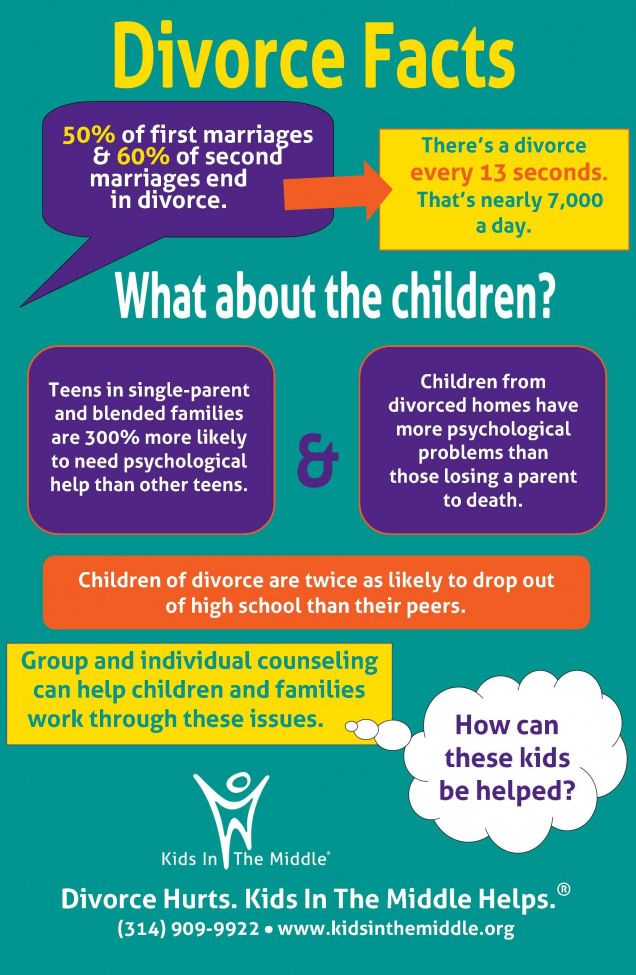 In other words, problems in a relationship are rarely the sole responsibility of just one person.
In other words, problems in a relationship are rarely the sole responsibility of just one person.
Take a look at your behaviors and speculate how they might have contributed to the state of your marriage.
These tips are useful for you: How to Save a Marriage That Is Falling Apart
2. Take Responsibility for Your Own Actions
Now that you know what you did to contribute to your marital problems, own up to them. Tell your spouse how you feel, and then commit to changing your behavior immediately.
⌄ Scroll down to continue reading article ⌄
⌄ Scroll down to continue reading article ⌄
3. Be Honest with Yourself and Your Spouse
Sometimes it’s easier to put your head in the sand and ignore the problems. But your marriage won’t get any better if you do this!
Sit down and be honest with yourself about the state of the marriage. Then, take your feelings to your spouse and have a deep, heart-to-heart talk.
4. Have a Talk
This is an obvious step, but it needs to be done. You can’t map out a plan for the future if you don’t even talk about your problems to begin with.
5. Each Partner Explains His/Her Perception of the Problems
Perception is reality
. In other words, your spouse probably sees the marriage in a very different way than you do. So, you need to listen to your partner’s point of view.
6. Just Listen
While your spouse is explaining their point of view, just listen to them. Don’t talk. Don’t interrupt them. Instead, stay calm and don’t get defensive.
7. Make a List of Things That Both People Want to Change
In order to rebuild your marriage, things obviously need to change – on both sides. So, both of you need to write down, and talk about, what needs to be changed in the marriage.
⌄ Scroll down to continue reading article ⌄
⌄ Scroll down to continue reading article ⌄
8.
 Write out a “Contract”
Write out a “Contract”It’s easy for people to say they are going to change, but it’s another thing for them to actually follow through with it. So, it’s best to write a “contract” between the two of you and sign it. This shows commitment to each other for change.
9. Spend Quality Time Together
You can’t rebuild your marriage if you aren’t spending time together! It seems obvious, but you need to rediscover each other, and spending quality time talking and doing things is imperative.
10. Ditch the Technology
Believe it or now, technology is a huge culprit in the downfall of relationships. Whether it’s the TV, cell phone, or video games, spending too much time with technology and not each other is the kiss of death. Make sure you put that down and talk to each other on a regular basis.
Can You Fix a Broken Marriage Alone?
This is a very common question that I am asked, which does not have an easy answer. In fact, my first instinct is to answer “it cannot be done. ” I truly do believe it takes two committed people to rebuild a marriage. However, if you don’t have a willing spouse, you can try these steps if you are desperate enough to try to go it alone:
” I truly do believe it takes two committed people to rebuild a marriage. However, if you don’t have a willing spouse, you can try these steps if you are desperate enough to try to go it alone:
Take a Look Back at What Happened in the Marriage
Do a “relationship autopsy.” In other words, how did the marriage die? Just like a literal dead body is dissected after death, you can look at your marriage and see what went wrong.
If you find that a lot of the causes were because of YOU, then you can change your actions.
Notice Any Common Patterns That Have Emerged over the Years
Relationships always develop patterns. Some are good, and some are bad. So, you need to look for recurring themes in your marriage that may have gotten you into trouble. Once you identify them, try something new instead of repeating the same actions in the future.
⌄ Scroll down to continue reading article ⌄
⌄ Scroll down to continue reading article ⌄
Final Thoughts
Rebuilding a marriage is not easy, but it can be done. The easiest way to have a healthy relationship is to not let it break down in the first place. However, since that’s not an option, all the tips in this article will definitely put you both on the path to resurrecting what was lost.
The easiest way to have a healthy relationship is to not let it break down in the first place. However, since that’s not an option, all the tips in this article will definitely put you both on the path to resurrecting what was lost.
More About Marriage
- What to Do If You Find Yourself in an Unhappy Marriage
- How to Set Marriage Goals That Make Your Relationship Stronger
- Everything You Need to Know Before Visiting a Marriage Counselor
Featured photo credit: Andre Hunter via unsplash.com
How to Fix a Broken Marriage Without Counseling (20+ Ways)
A broken marriage can be very difficult to deal with, and if left unaddressed, it will only get worse.
So what do you do when your marriage is in trouble, but counseling is not an option? We asked relationship experts to share their insights.
Erica Cramer, LCSW
Dating and Relationship Expert | Clinical Social Work/Therapist, Cobb Psychotherapy NYC
Marriages “break” for many different reasons. From not putting any effort into the relationship to having a sordid affair.
From not putting any effort into the relationship to having a sordid affair.
When a relationship is broken, both people have to want to fix it for the repair to be successful. This will require each party to be willing to invest the time and energy necessary to resolve the situation.
In order to effectively address problems outside of a therapist’s office, each person needs to be humble and willing to own up to their mistakes. They must be willing to listen and truly understand what their partner is saying. They must also be committed to growth and change.
If you are more of a Do-It-Yourself person and would like to avoid marital counseling at all costs, here are 5-steps to help repair the damage and salvage your broken marriage:
Write each other a letter
Writing it out before talking it out can help you flesh out your thoughts—calmly and organized—and gives you both a safe space to see opinions and issues from the other’s perspective.
Letter writing also forces you to think before you speak.
When you don’t have a mediator, it’s important that you’re fighting fair. Writing it out allows people to re-read lines and ensure the points they’re trying to get across are easy to understand, avoid accusatory statements, and they’re communicating in a manner their partner can receive the information.
It also eliminates loud voices and defensiveness and gives both of you the time to process your own thoughts. Sometimes writing it all down is just as simple as needing a “thought dump.” Purging these built-up issues and feelings.
Once you get it all out, you might decide some points are small and symptomatic of bigger issues and not even worth mentioning. You may read what’s been plaguing the relationship from your own perspective and understand that you might need a professional, or it may not be worth salvaging to you.
You may just need to get it all out there and decide that it was more cathartic to you than necessary to share with them, and it might alleviate the issue right at its pain point. Plus, writing doesn’t involve any loud voices, and most people edit any accusatory statements.
Plus, writing doesn’t involve any loud voices, and most people edit any accusatory statements.
Ask a mutual friend to mediate
Maybe you have tried to talk, and it always ends in a screaming match. Get a person you both trust and respect to mediate a productive conversation between the two of you. This person should know both of you well and not be biased in one way or another.
Set parameters around the conversation prior to having it.
If you’re taking this step, remember that you are taking measures to avoid counseling, and you can’t kill the messenger. You need to be prepared and mindful not to hold a grudge against the mediator; you brought them in after all.
They are trying their best to help you, and if they say or do something you do not like, they aren’t a professional and are certainly not at fault. They have your best interest at heart and are trying to help you both repair the marriage.
Be respectful of their time and sacrifice by remaining open to listening to your partner, truly hearing what they have to say, and avoiding interruption or raising your voice. When the conversation gets loud or out of control, the mediator’s responsibility is to call you out. Don’t take offense.
When the conversation gets loud or out of control, the mediator’s responsibility is to call you out. Don’t take offense.
Stop, listen and reset. If you are not able to abide by these guidelines, it may be time to consider a professional mediator.
Take a break together
It’s hard not to be happy on vacation. Sometimes, you have to get back into the bubble to remember what you love about one another and get a taste of “when things are good.” It makes it easier to open up the lines of communication, take down walls, and want to work it out.
Whether it’s hitting the slopes in Aspen or relaxing on a beach in The Bahamas, traveling can be a good way to start to repair a broken marriage.
Travelling enables you to work as a team and showcase strengths in your partner that may be hidden in everyday life. But you don’t have to break the bank. Even a staycation at a hotel that you love or leaving the stress of domestic chores, work, and kids for a few days and changing your scenery can really work wonders.
It also gives you more time and energy to work on your relationship and allows you to relax and focus on reconnecting.
Imagine life without your partner
In any marriage, there are many times when you cannot stand your partner. It’s normal to feel this way, and anyone who tells you otherwise is lying. The difference between healthy annoyance and toxicity is the root of these frustrations and the solution.
- Is your partner just not helpful around the house?
- Are they super messy or sometimes controlling?
- Maybe they ask innumerable questions when you’re clearly busy?
- Perhaps they never want to choose what’s for dinner but then say you always pick what you want?
That’s annoying, and there’s a difference between being annoyed and living without someone.
Think of the good things they bring to your life and the relationship, and consider living without them in your life. Imagine what it would be like to wake up alone. Not have an automatic plus one for events.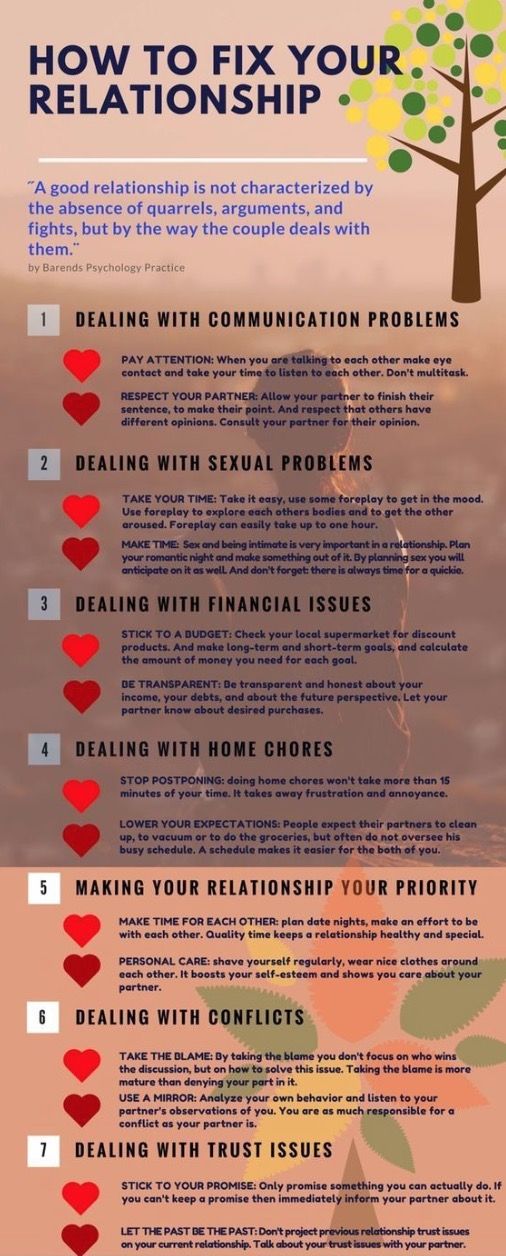 Raise children alone. Shoulder all of the expenses.
Raise children alone. Shoulder all of the expenses.
These are important logistical concerns to consider before deeming a marriage broken and not putting in the effort to fix it. You also need to be able to identify what’s beyond an annoyance and moves into unhealthy territory. This is covered deeper in my last and final tip.
Pick your battles
We all have negotiables and non-negotiables. Don’t die on the soapbox over something small. A counselor will learn you as a couple and individuals and help you both define your issues, how to communicate them, how to improve them, and what’s more and less important to you both.
If you’re doing it on your own, you need to be prepared to have some pretty serious conversations with yourself about what you can live with and other things that you cannot live without. Be clear on what falls into which category in your marriage.
If your marriage is broken because of things that are unimportant, try to keep them in perspective. No one is perfect, not your partner and not you. It is important to make allowances for people and to be able to accept people’s limitations if they do not negatively affect you (they may just be annoying or inconvenient).
No one is perfect, not your partner and not you. It is important to make allowances for people and to be able to accept people’s limitations if they do not negatively affect you (they may just be annoying or inconvenient).
Related: How to Fix a Broken Relationship
If the broken things are important to you, that is another story and needs to be properly addressed. Suppose your partner argues with your family, isolates you from friends, or makes poor financial decisions. In that case, these are major issues to consider, and you have to think about whether they can be repaired, the conversations it will take to get there, and what that looks like without a professional.
I’ve seen marriages with a seemingly unbreakable bond encounter the smallest issues, and the couple throws in the towel and walks away. I’ve seen marriages that seem as fragile as a Fabergé egg smash into a million little pieces and, with work, bounce back stronger than ever.
At the end of the day, as long as both partners are on the same page, every broken marriage has a chance.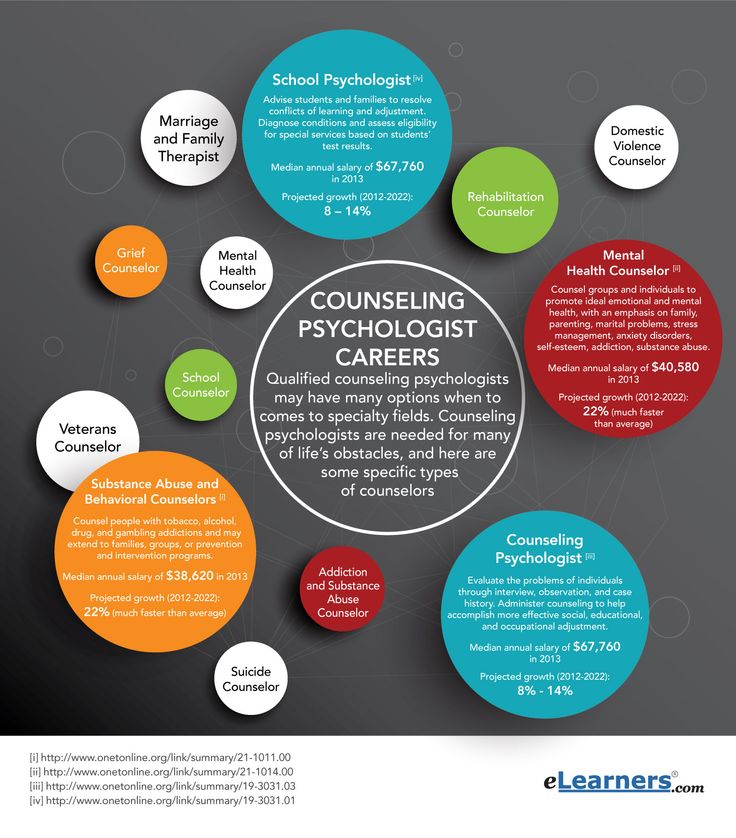
The way to repair things varies from couple to couple. There isn’t a fix-all solution that will work for everyone, and it’s important to try different things and not become aggravated in the process. You were once happy, you were once in love, you were once a functioning team, and that means there’s a great chance, with some work, you can return to being one.
Ultimately, if you’re both willing to fight for the relationship and doing it yourself hasn’t worked, be open to meeting a professional.
Dr. Carla Marie Manly
Clinical Psychologist | Speaker | Author, “Date Smart: Transform Your Relationships and Love Fearlessly“
Although marriage therapy can help couples address their issues in a highly supportive way, some partners prefer a do-it-yourself approach. If divorce is on the horizon, it’s important to take the marital issues seriously before they get worse.
If both spouses are relatively high functioning, partners who are truly committed can make a great deal of headway by tuning into and addressing marital issues with honesty and compassion.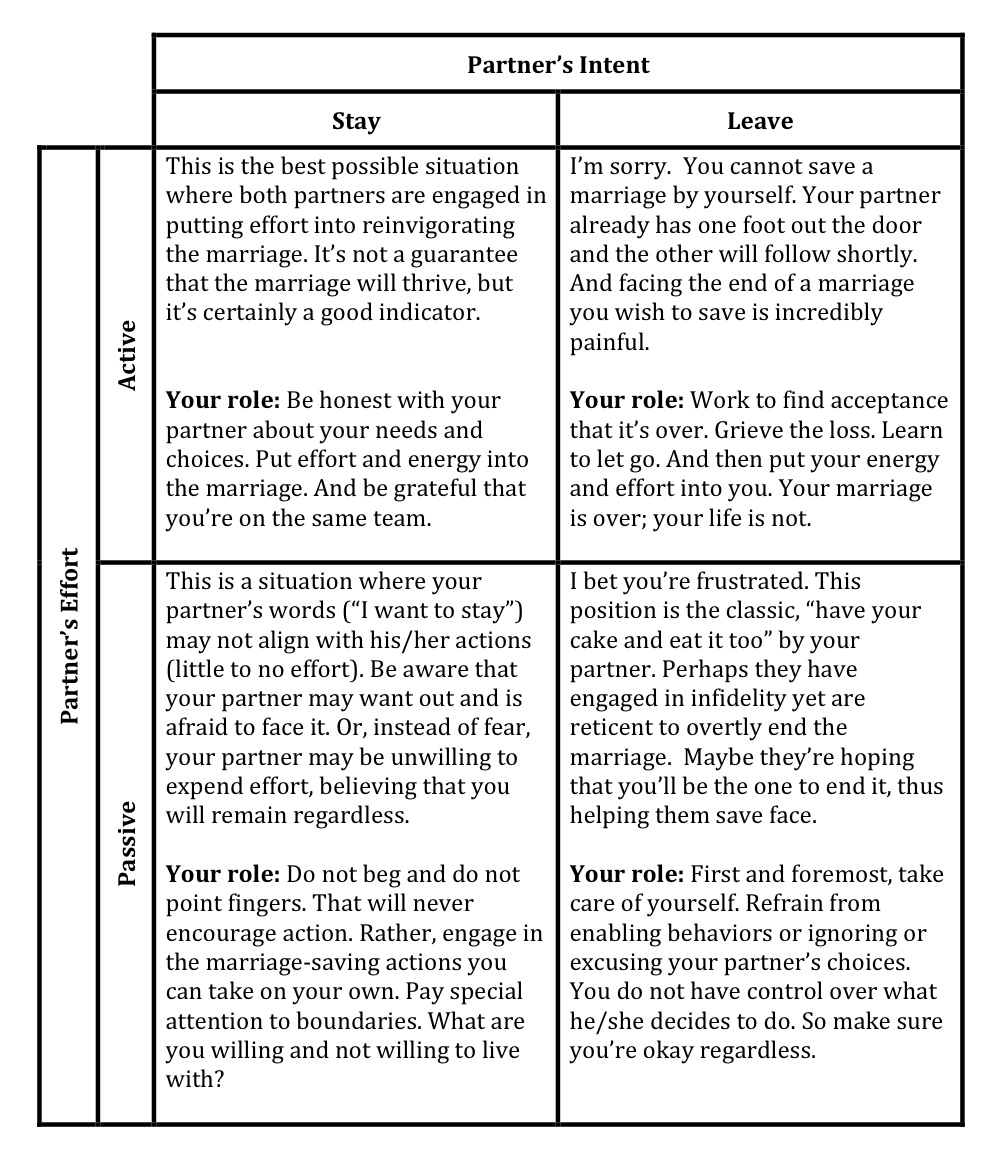
That said, if one or both partners are highly combative, tend to shut down, or generally have low emotional intelligence, the self-help route can be tremendously challenging; in such cases, a blend of counseling and self-help work can offer the best results.
Couples who are invested in making their marriage thrive can take the following steps to address marital issues:
Make an “appointment” at least once a week to work on relationship issues
Weekends are generally best as work stress is lower, and energy is more available. Use these appointments to address marital issues, work on healthy communication, and tune in to each other. If children are in the picture, arrange for childcare to allow focused time together.
Take a course on healthy communication
Start your first “appointment” by taking a course on healthy communication. Whether partners watch a free online video or purchase a book on communication, learning healthy communication is the first “must. ”
”
Use a self-help relationship book
Use a self-help relationship book as your guide. Find relevant chapters to read to each other to increase self-awareness and relationship connection.
Clear out current baggage first
Then work backwards to address any unresolved issues. Take your time to avoid overwhelm or emotional distress.
Focus on resolving ongoing issues
Focus on resolving ongoing issues without blame and judgment. Use a win-win approach to create lasting solutions.
Create a “fun time” each week
Create a “fun time” each week when marital issues are not addressed to create fun, restorative time as a couple.
Practice giving gratitude to each other daily
The more you focus on what is going right in the marriage, the more your brain will become hardwired to notice how much you love and appreciate your partner.
Susan Silver, MBA, MA, LCPC
Gottman Institute-Trained Couples Specialist | Psychotherapist, Wellington Counseling Group
Five ways to stay in love:
- Show some sort of appreciation every single day.
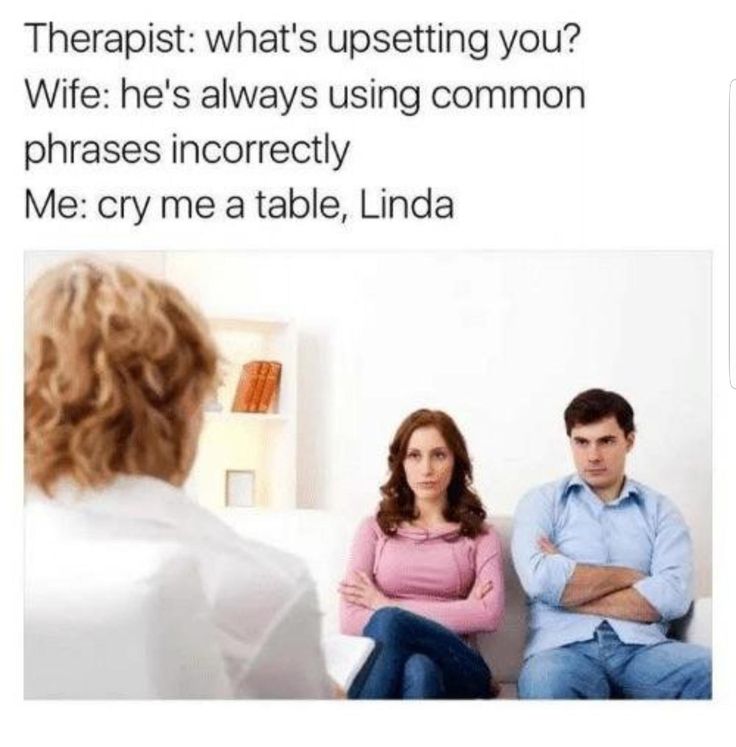
- Recognize your partner for big and little things.
- Praise your partner for being a good parent or for cleaning up the kitchen.
- Demonstrate some form of physical touch every single day.
- Respond to your partner’s bids for communication and/or affection every day. There are hundreds of opportunities a day where you can affirm your partner if you are paying attention.
- For example, if your partner tells you something, you can respond in a way that shows you are interested, bored, or annoyed that they interrupted you. To respond positively to a bid for affection might be something as simple as smiling at your partner who touches you on the shoulder as you both pass through the kitchen.
- Have fun daily (together and separately).
- Recognize your friendship. Remember how you became friends and what characteristics you recognized in each other.
- Couples who are friends have a much better chance of faring well.

- Couples who are friends have a much better chance of faring well.
Simple exercises couples can do to keep communication alive:
Exercise 1: Warm morning exercise
Every morning, tell your partner “good morning,” and chat a bit before launching into who needs to drive the kids to school or running out the door to your exercise class. Spend a few minutes talking about what you expect out of your day and when might be a good time to check in with each other.
During COVID, many couples are working from home together, and while they are together all the time, it may not be quality time. Taking a moment to check in with each other so you know what your partner’s day looks like and if they might have time for a quick lunch or check-in is key.
Exercise 2: Something other than you
Talk to your partner about something that doesn’t have to do with them. One partner acts as a listener, and the other the speaker. But, there are rules.
The listener must be supportive and ask good questions of the speaker.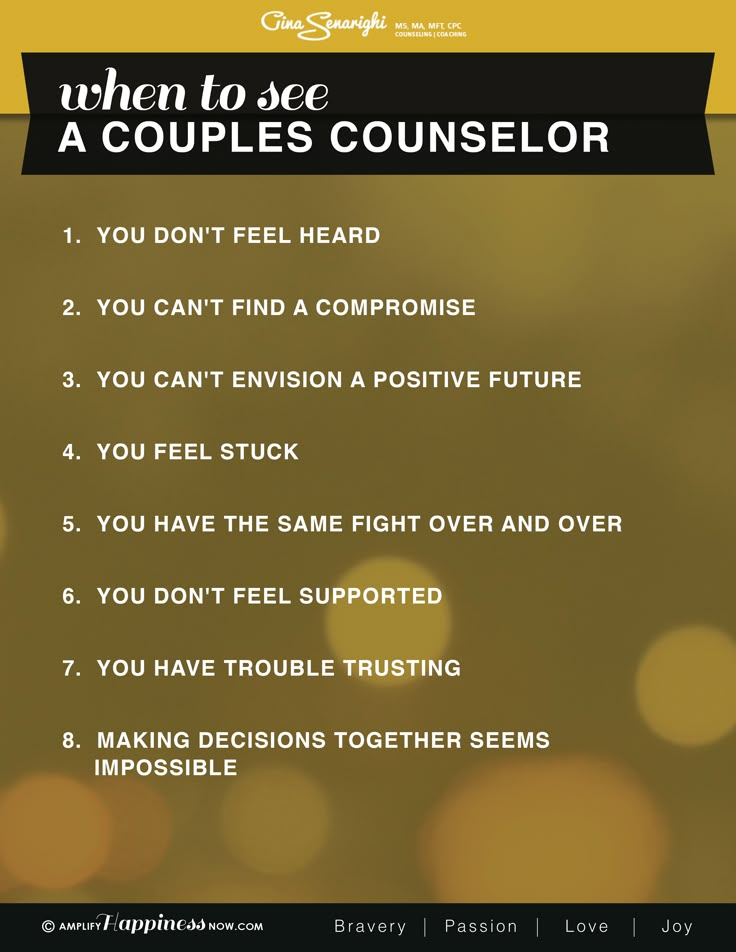 They must also be non-judgmental. So let’s say your partner is telling a story about how their boss admonished them for being late to work. A good listener might say something like, “oh yes, I can see how that would be upsetting,” rather than jumping in with a comment like, “well, you are often late.”
They must also be non-judgmental. So let’s say your partner is telling a story about how their boss admonished them for being late to work. A good listener might say something like, “oh yes, I can see how that would be upsetting,” rather than jumping in with a comment like, “well, you are often late.”
We don’t always need a fixer. Many people just want to be really heard.
As a last resort, the listener can ask something like, “Is there any way I can help or something I can suggest?”
Exercise 3: Just give me 20 minutes
Spend 20 minutes talking to each other each day, without distractions. Sure, it can be 15 but make sure this time is dedicated to your partner. The TV should be off, and phones should be put away.
Cheri Timko, M.S.
Relationship Coach, Synergy Coaching
What do you do when you know your marriage is in trouble, but counseling is not an option? Many couples face this problem for a variety of reasons.
For some, they don’t have access to counseling because they lack time, money, or childcare. For others, one of them feels strongly against bringing anyone else into the discussion.
Sometimes couples believe that counseling could hurt their careers, status, or credibility. Other times, couples don’t have access to a well-trained therapist.
Whatever the reason, there are options:
Identify the areas that are not working well
With your spouse, identify the areas that are not working well. Talk about the problems in neutral terms. For example, it is better to talk about how we struggle to solve problems rather than, “You always shut down and avoid hard conversations.”
Related: How to Solve Relationship Problems Without Breaking Up?
Identify the areas where your relationship is working well
Try to make this list as long and detailed as possible. These strengths will give you motivation and inspiration when you feel defeated or lose momentum.
Decide on a plan that will address each of the identified trouble areas
Together, decide on a plan that will address each of the identified trouble areas. There are many ways to solve any given problem in a marriage—you are looking for a solution that you both can live with. Be creative in looking for solutions.
For example:
- Read a well-respected relationship book together.
- My best recommendation is “The Seven Principles For Making Marriage Work” by John Gottman, which addresses many common marriage problems.
- Complete a relationship course together.
- Go on a weekend marriage retreat.
- Meet with a mentor couple.
- Go on a weekly date.
- Learn a new skill together.
- Practice new ways of acting towards one another (i.e., being more appreciative, kinder, or calmer).
Develop a way to evaluate your progress
Most couples need to meet regularly to discuss how things are going so they know if things are getting better or not.
Once you realize that your marriage is in trouble, most people want to fix the problem right away. It is important to remember that change takes time and consistency. The solutions will take dedication and patience to integrate into your relationship in a meaningful and lasting way. You need to focus on changes that you can continue doing for the rest of your relationship.
And, if that doesn’t work, you can always find a well-trained couples therapist. Often, they can shorten the path to long-lasting, sustainable change.
Patricia Love (CPC)
Confidence and Empowerment Coach for Sales Women | Author, “Seen and (un) Heard“
If anyone says marriage is easy, they are flat out lying to you. All marriages have ups and downs, but it’s in that downtime that you might think, “I need a counselor.”
The first thing you need to know is you’re not alone in this; everybody has marriage issues at some point or another—it’s how you choose to work through them.
Yes, you can pay for a counselor once a week for however long, but if both are in it to win it, you can sit down with your spouse and start acknowledging your positives and negatives. You know that conversation you had before you got married when things flowed easily, and you would do anything for the other person?
Well, you can get back to that; it’s just whether or not you both choose to.
The first and most important thing you should do is go out to a quiet place where you can chat, someplace that is comfortable and neutral for both of you—this is where you both sit down and decide whether you want to work on this together. It does take two! But if both parties say “yes,” then you are halfway there.
Here are a few thoughts on how to fix a broken marriage:
Decide together to not make digs at each other
Decide together to not make digs at each other, come up with a safe word (make it a funny word that you might even laugh at) that if you feel your spouse is beginning to dig you or get defensive, you can say the safe word because sometimes we don’t even realize you’re doing it.
Start by saying “I feel” statements
Instead of saying “you should,” start off by saying, “I feel.” When you do this, you’re just letting the other person know how it makes you feel instead of playing the blame game.
Each person should write out their wants and needs
Each person should write out their wants and needs and then make an effort to work through them one at a time to see if it is something that you can compromise on.
Saving a broken marriage is all about communication. Most of the time, the marriage isn’t irreparably broken; it’s just in a growth spurt because you’re both growing and changing. However, you want to make sure you grow together and not apart.
It’s all about choosing to be together, and if you make that decision, you will choose to work on it together.
Vickey Easa, LICSW
Therapist | Co-Host, “Why Does My Partner…” Podcast
Lean into the feelings and be concerned about what they are experiencing
We all often think we know best.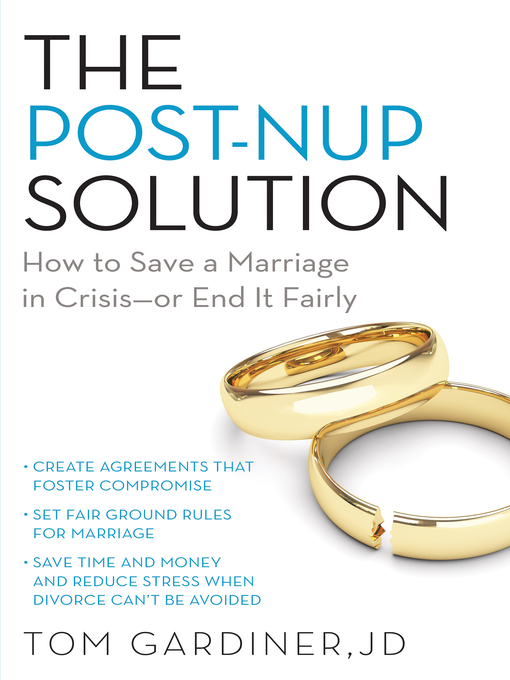 And this is one of the most common reasons couples fight. Our realities are subjective. And relationally speaking, you want to cultivate space within your relationship for your differences.
And this is one of the most common reasons couples fight. Our realities are subjective. And relationally speaking, you want to cultivate space within your relationship for your differences.
The relational answer to who’s right and who’s wrong is “who cares.” This is because the relational answer is, “I care about you trusting the resiliency of this relationship more than I care about which one of us is right.”
So if your partner comes to you with an issue, rather than battle over the details, lean into the feelings and be concerned about what they are experiencing in the relationship between you rather than with arguing the details of what happened.
Risk direct requests
Going after what you want is important if you want a relationship that works for both of you. Many people hope their partner will guess their needs and wants, communicate through complaints, or think, “If you loved me, you’d know what I want without me having to ask.”
When we don’t speak up for our needs, we do a disservice to ourselves and our partners.
Not only do we get less of what we want, but we also leave them in the dark and feeling like they are failing. A solution to this common difficulty is to risk the vulnerability of saying what you want out loud.
The first step is to get clear with yourself about what is a request and what is a demand.
- A demand is something you have to have, or the relationship doesn’t work.
- A request is something you really want or are hoping for.
If your partner isn’t up for it, you can collaborate for something that works for both of you or move through the feelings that are going to come up when you receive that message. That’s a tough one, and it’s worth it.
Rebecca Wong, LCSWR, DARTT
Therapist and Licensed Clinical Social Worker, Connectfulness Counseling | Co-Host, “Why Does My Partner…” Podcast
Shift from a “me” focus to a “we” focus
We all fall into slumps where we’re focused on ourselves rather than our relationships. Sometimes we’re simply overworked and busy, or we might be secretly mad and holding some form of resentment.
Sometimes we’re simply overworked and busy, or we might be secretly mad and holding some form of resentment.
When we focus on ourselves rather than our relationships, we can get lost in being “me/I focused.”
The work of moving into greater relational health is not about leaving your needs behind; rather, it’s about shifting towards a “we/us focus.” This shift towards “us consciousness” is about knowing that how you’re doing, how I’m doing, and how we are together—it’s all of equal importance.
We sometimes refer to this as “relationship mindfulness.” You can reach this relational mindfulness by asking yourself to pause and remember love before you respond or bring up something hard.
Practice you-turns
Remind yourself that it’s OK for you and your partner to be different. To have a different agenda, to have different wants and needs—and that in and of itself is not inherently threatening.
Notice when you do take in something your partner says or does that threatens you. Are your boundaries really porous, and you let everything in? Or are you really rigid and walled off and find it hard to connect to others?
Are your boundaries really porous, and you let everything in? Or are you really rigid and walled off and find it hard to connect to others?
When you get curious about how you are showing up in the relationship, you can come out of the blame that we get in when we get defensive and see that you have a part in the dance you guys are stuck in too. Seeing your steps in the dance that’s got you stuck gives you the power to shift your response.
Relationships are a bit like a bicycle; when you change the direction and speed of one wheel, the other one shifts too.
Juliane Taylor Shore, LPC S, LMFT S, SEP
Therapist, Clear is Kind | Co-Host, “Why Does My Partner…” Podcast
Invite yourself into openness to negotiate and communicate that you care about your spouse
Sometimes our partners ask us for things that aren’t a fit for us. There’s a way to say no that is provocative, and there’s a way to say no that invites partnership. Try saying no, and…
Here’s how to think about it: My partner really wants something; I care about them and want to find a way to help them feel good, but what they’re asking for doesn’t work for me. I want to partner with them to solve this dilemma together.
I want to partner with them to solve this dilemma together.
Get curious about what needs and wants your partner is trying to meet. Invite yourself into openness to negotiate and communicate that you care about your spouse. It might go like this:
“No, that doesn’t feel good to me, and I can tell this is super important to you. Tell me more about what your hopes are. I want us to figure this out together.”
Dr. Robin Buckley, CPC
Executive Coach and Couples Coach
Consider couples coaching
For many couples, the idea of couples counseling or therapy is aversive. These approaches are often seen as “last-ditch” efforts before meeting with attorneys. Additionally, for many individuals, the decision to end the relationship has already been made, even if not verbalized, and meeting with a counselor is a formality to say all attempts were made to save the marriage.
A different option to strengthen a marriage is couples coaching. Unlike martial therapy, which often spends significant time focusing on past issues to correct the present situation, couples coaching starts with where the couple is now and how to utilize the strengths of the relationship to improve the present and the future.
Unlike martial therapy, which often spends significant time focusing on past issues to correct the present situation, couples coaching starts with where the couple is now and how to utilize the strengths of the relationship to improve the present and the future.
Instead of believing they have to reinvent themselves, coaching acknowledges that there are already existing behaviors, skills, thoughts, and feelings that can be the foundation for the improvement of the marriage.
Couples coaching works by providing a space for the couple to establish clear goals and then determining concrete strategies to achieve those goals.
Coaching provides the opportunity for the couple to be the experts in the relationship, determining what works for them rather than strategies sometimes found in therapy that are generalized for the majority of couples. Couples coaching truly becomes an individuated experience specific to the couple.
Ray Sadoun
Medical Reviewer & Addiction Advocate, OK Rehab
Fixing a broken marriage without therapy is challenging, but it’s possible if both parties are willing to work on the relationship. Here are some tips for restoring your marriage:
Here are some tips for restoring your marriage:
Schedule regular time together
Your marriage does not deteriorate overnight. The majority of the time, broken marriages are the result of unhealthy problem-solving. For example, if you were arguing with your partner all the time, you may have decided to spend less time together, which only worsens relationship issues.
The best way to solve this is to schedule regular time together so that you can get to know each other again and grow together rather than apart.
Write each other letters
It isn’t always easy to communicate about deep issues face-to-face, so I often recommend that my patients write letters to each other.
You could address how your partner has hurt you, how you have hurt them, and how you would like your relationship to change for the better. Swap letters and take the time to read each other’s thoroughly, trying not to take it too personally.
After reading the letters, it may be easier to start a conversation about your marriage.
Don’t be scared of conflict
Every marriage involves conflict, so don’t naively think that you will never argue once you solve your relationship issues. As long as the conflict is healthy and neither member of the couple is being bullied, there is no reason that arguments should prevent you from growing closer.
However, it is important to practice self-control when arguing so that the conflict remains productive. Try setting a timer for a minute and expressing all your thoughts to your partner, then immediately set the timer for another minute and allow your partner to talk.
This helps both you and your partner to get your points across without being interrupted.
Rio and Micca Watkins
Relationship Strategists, Powermate | Matchmakers | Transformational Speakers
Counselling has become a common practice among couples before they tie the knot. It’s almost like a reassurance that they’ve checked one more thing off the list to their journey down the aisle. But what happens after you’ve said “I do,” and it’s just the two of you.
But what happens after you’ve said “I do,” and it’s just the two of you.
In a study done by comparecamp, 42% of married couples got divorced in 2020 (that is down from 50% in the 1980s). The same study also shows that 58% of Americans believe that divorce is much better than staying together in an unhappy marriage.
But how can you actually work on staying together and giving your union your all? By being O.P.E.N.
Here are four ways that vulnerability can help to fix a broken marriage without counseling:
- O– Offer a safe space for your spouse to communicate without judgment. The more they feel like they can be themselves, the more they will be able to share their views on your marriage.
- P– Participate in the conversation by also offering your perspective on the marriage without pointing the finger at your spouse.
- E– Earn the trust of your partner back by offering possible solutions to save your marriage.

- N– Normalize a new routine by adding vulnerability nights to your marriage. These are just like date nights, but they are specifically designed for you to both share your perspectives on the state of your marriage.
How useful was this post?
Click on a star to rate it!
We are sorry that this post was not useful for you!
Let us improve this post!
Tell us how we can improve this post?
what you need to know - Legal advice
Contents
- What is a prenuptial agreement (contract)
- Procedure for concluding a marriage contract
- What conditions can be included in a marriage contract
- What conditions cannot be included in a marriage contract
- Is it possible to change or terminate the marriage contract
- Marriage contract and civil marriage
- Marriage contract and property division agreement
- Invalidity of marriage contract
What is a marriage contract (contract)
According to Article 40 of the RF IC, a marriage contract is an agreement of persons entering into marriage, or an agreement of spouses that determines their property rights and obligations in marriage and (or) in case of its termination. This, in fact, is the essence of the contract.
This, in fact, is the essence of the contract.
A marriage contract can be concluded in the period from the moment of filing an application for registration of marriage until its dissolution in the registry office or a court decision on the dissolution of marriage. In this case, the contract concluded before the state registration of marriage shall enter into force from the moment of such registration.
Every year more and more marriage contracts are concluded in Russia. At present, their number has reached 50 thousand per year. And although now such contracts are concluded not only by very wealthy citizens, but also by representatives of the middle class, while the parties to the contract are most often spouses who are already in the process of divorce. The conclusion of a marriage contract allows you to avoid lengthy litigation and significant costs for qualified lawyers.
Procedure for concluding a marriage contract
It must be borne in mind that the marriage contract is concluded in writing and must be notarized. Only in this case it has legal force.
Only in this case it has legal force.
What conditions can be included in a marriage contract
The content of a marriage contract may vary, but in general, according to Russian law, it regulates exclusively property relations, that is, it involves the establishment of a certain property regime for spouses in marriage.
Since the conclusion of a marriage contract is aimed at changing the legal regime of property of the spouses, it is first necessary to determine which regimes can be used instead. In accordance with paragraph 1 of article 42 of the RF IC, the marriage contract may establish the following regimes of property of the spouses.
Joint ownership regime
The property is owned, used and disposed of by spouses without determination of shares. The disposal of such property is carried out by the consent of both spouses, regardless of to whom it is registered and, accordingly, who makes this or that transaction in relation to this property. Since this regime applies to property acquired during marriage by default, the marriage contract may provide, for example, that this regime applies only to part of the property. Another way to use this regime in a marriage contract is to extend it to property that, by law, is the personal property of each of the spouses. This applies in particular to premarital property. As a general rule, the latter belongs to the spouse to whom it belonged before marriage. In the event of a division of jointly owned property, the shares of each of the spouses will be allocated. Note that, by virtue of the norms of the RF IC, the shares are assumed to be equal, unless otherwise established by the agreement between the spouses.
Since this regime applies to property acquired during marriage by default, the marriage contract may provide, for example, that this regime applies only to part of the property. Another way to use this regime in a marriage contract is to extend it to property that, by law, is the personal property of each of the spouses. This applies in particular to premarital property. As a general rule, the latter belongs to the spouse to whom it belonged before marriage. In the event of a division of jointly owned property, the shares of each of the spouses will be allocated. Note that, by virtue of the norms of the RF IC, the shares are assumed to be equal, unless otherwise established by the agreement between the spouses.
Shared ownership regime
Each spouse has a specific share in the ownership of property. The possession and use of such property is carried out by agreement of both spouses. However, each spouse has the right, at his own discretion, to sell, donate, bequeath, pledge his share or dispose of it in any other way, subject to the rule on the preemptive right to purchase a share by the second spouse when it is sold to third parties. This regime allows you to take into account the contribution of each spouse to the acquisition of specific property. Depending on such a contribution, shares in the ownership of the property can also be determined. It is very important to specify in the marriage contract what kind of property of the spouses is subject to the regime of shared ownership and what criterion serves to determine the share of each of the spouses. Under this regime, no allocation of shares is required in the event of the division of property of the spouses.
This regime allows you to take into account the contribution of each spouse to the acquisition of specific property. Depending on such a contribution, shares in the ownership of the property can also be determined. It is very important to specify in the marriage contract what kind of property of the spouses is subject to the regime of shared ownership and what criterion serves to determine the share of each of the spouses. Under this regime, no allocation of shares is required in the event of the division of property of the spouses.
Separate property regime
The property is the personal property of one of the spouses. The possession, use and disposal of such property is carried out by the owner spouse at his discretion, without taking into account the opinion of the other spouse. This regime can be extended to all the property of the spouses, to its individual types (for example, real estate, securities) or to specific property. Most often, separate ownership is established in relation to the registered property, namely: real estate, vehicles. Accordingly, the owner of a particular property is the spouse in whose name it is registered. But nothing prevents the provision of separate property, for example, for bank deposits, securities or luxury goods. Please note that this regime is beneficial for spouses, one of whom has children from a previous marriage, since in the event of the death of a parent spouse, his children will not be able to claim the property of the second spouse.
Accordingly, the owner of a particular property is the spouse in whose name it is registered. But nothing prevents the provision of separate property, for example, for bank deposits, securities or luxury goods. Please note that this regime is beneficial for spouses, one of whom has children from a previous marriage, since in the event of the death of a parent spouse, his children will not be able to claim the property of the second spouse.
The above regimes of the marriage contract can be applied both to existing property and to property that will be acquired in the future.
We also note that in the marriage contract it is possible to use one of the regimes or their combination.
Property not covered by the contract will be considered joint property of the spouses.
What provisions can be included in a prenuptial agreement
In addition to determining the ownership regime for existing or future property, as well as the composition of the property transferred to each of the spouses in the event of a divorce, the following provisions can be included in the prenuptial agreement:
- on the rights and obligations of mutual maintenance.
 The size of the maintenance of the spouse is determined at their discretion.
The size of the maintenance of the spouse is determined at their discretion. - on ways to participate in each other's income. At the same time, income is understood as wages, dividends from securities, income from the lease of property and other income related to the participation of property in civil circulation, income in kind, for example, crops, as well as any other income received legally. Under the terms of the marriage contract, the income of one of the spouses can be distributed in a certain way, for example, 30% is the personal property of the spouse who received it, and the remaining 70% is transferred to the second spouse for targeted spending on family needs.
- on the procedure for each of the spouses to bear family expenses. We can talk about any family expenses: paying utility bills and property taxes, purchasing food, paying for medical treatment, education, etc.
- other provisions relating to property relations of spouses. For example, the conditions for the spouse to use a dwelling owned by the second spouse.

What conditions cannot be included in a marriage contract
According to paragraph 3 of Article 42 of the RF IC, a marriage contract cannot restrict the legal capacity or legal capacity of the spouses, their right to apply to the court for the protection of their rights; regulate personal non-property relations between spouses, the rights and obligations of spouses in relation to children; provide for provisions restricting the right of a disabled needy spouse to receive maintenance; contain other conditions that put one of the spouses in an extremely unfavorable position or contradict the basic principles of family law.
Given the popular questions regarding the terms of the marriage contract, it should be clarified that, based on the above, clauses on marital fidelity and household duties cannot be included in the contract, for example, that the husband undertakes to take out the garbage, and the wife to cook breakfast, lunch and dinner every day. It is also impossible to establish a reward for the birth of a child. However, by virtue of clause 2, article 4 2 of the RF IC, the rights and obligations provided for by the marriage contract may be limited to certain periods or be made dependent on the occurrence or non-occurrence of certain conditions. Thus, it is possible to prescribe, for example, that in the event of the birth of a child, the regime of separate property of the spouses changes to the regime of joint property.
However, by virtue of clause 2, article 4 2 of the RF IC, the rights and obligations provided for by the marriage contract may be limited to certain periods or be made dependent on the occurrence or non-occurrence of certain conditions. Thus, it is possible to prescribe, for example, that in the event of the birth of a child, the regime of separate property of the spouses changes to the regime of joint property.
The marriage contract cannot regulate the issue of residence of children in the event of a divorce of the parents. The rights and obligations of parents in relation to children can only be prescribed in an agreement on children.
It should also be noted that under the terms of the marriage contract, all the property of the spouses cannot become the sole property of one of them. In this case, we will just talk about the extremely disadvantageous position of the second spouse. Since such an agreement is a civil law transaction, such a circumstance will be the basis for recognizing the marriage contract as invalid.
Is it possible to change or terminate the marriage contract
At any time, as long as the marriage is not dissolved, the spouses have the right to enter into an agreement to change or terminate the contract.
If the spouses want to change the text of the marriage contract or terminate it, such an agreement must also be concluded in writing and certified by a notary.
A marriage contract is automatically terminated from the moment of termination of the marriage, with the exception of those provisions that are provided for in the event of its termination.
Marriage contract and civil marriage
The question often arises about the possibility of concluding a marriage contract between common-law spouses. Note that in the legislation there is no such thing as "civil marriage". In accordance with paragraph 1 of Art. 10 of the IC of the Russian Federation, marriage is concluded in the registry office. According to paragraph 2 of this article, the rights and obligations of spouses arise from the date of state registration of marriage in the registry office. Thus, according to Russian law, only official marriage is recognized. Since the marriage contract is concluded between spouses or persons who have submitted an application for marriage registration, which is expressly stated in Art. 40 of the RF IC, the conclusion of such an agreement between common-law spouses is impossible. To change their property relations, such spouses may conclude any other civil law contract: purchase and sale, exchange, donation, etc.
Thus, according to Russian law, only official marriage is recognized. Since the marriage contract is concluded between spouses or persons who have submitted an application for marriage registration, which is expressly stated in Art. 40 of the RF IC, the conclusion of such an agreement between common-law spouses is impossible. To change their property relations, such spouses may conclude any other civil law contract: purchase and sale, exchange, donation, etc.
Marriage contract and agreement on the division of property
The RF IC provides for another way to change the property relations of spouses - an agreement on the division of property. What is the difference? Firstly, a division agreement can only be concluded between spouses, while a prenuptial agreement can be concluded before the official registration of marriage. Secondly, the subject of the division agreement is exclusively the property already acquired by the spouses, and the subject of the marriage contract is also the property acquired in the future. Thirdly, clauses on the property obligations of the parties cannot be included in the partition agreement.
Thirdly, clauses on the property obligations of the parties cannot be included in the partition agreement.
Invalidity of the marriage contract
The marriage contract may be recognized by the court as invalid in whole or in part on the grounds provided for by the Civil Code of the Russian Federation for the invalidity of transactions.
If you have any additional questions related to the execution of the marriage contract, you can ask our lawyers using a special form on the website.
"Ecological" divorce - without tantrums and losses
Klopova Irina
Lawyer of the Bar Association of the Moscow Region, professional mediator
February 26, 2021
Tips
Spouses can save their nerves and money by getting divorce online, resolving a conflict with the help of a mediator, as well as concluding a maintenance agreement, agreements on determining the order of communication with children and on the division of jointly acquired property
Every year the number of divorce proceedings in Russia is growing. In early 2020, due to the coronavirus pandemic, this figure dropped, but already in the second half of the year there was a new divorce boom – the number of applications for divorce increased sharply.
In early 2020, due to the coronavirus pandemic, this figure dropped, but already in the second half of the year there was a new divorce boom – the number of applications for divorce increased sharply.
According to official data from Rosstat, the average age of spouses at the time of divorce is 25-29 years. Moreover, families that already have children break up more often. Such statistics do not inspire optimism. It's a little reassuring to know that in recent years more and more couples are following the "green" divorce trend. This allows you to solve the issues facing the parting spouses, with minimal time, effort and money.
In this article, we will tell you how to get a divorce "environmentally".
Divorce: online course
In the Soviet years, judges tried to find out the reason for the divorce and reconcile the spouses. And today, the conflict that led to the desire to dissolve the marriage is not customary to submit to the court. Now it is enough for the judge to receive a statement of claim written according to a standard model and formally notify the parties. In the case of obtaining consent to a divorce from the other side, the spouses will be divorced, without thinking about whether it was possible to reconcile them.
In the case of obtaining consent to a divorce from the other side, the spouses will be divorced, without thinking about whether it was possible to reconcile them.
New changes in the divorce process resulted in a pandemic. Now the spouses prefer not to appear at the court session at all - they save moral strength and time. They send an application for divorce electronically and often ask to consider the case in their absence.
What to do if you are determined to get a divorce?
1. Prepare a claim for divorce (I am attaching a sample; it can also be downloaded from the website of the magistrate's court that you plan to apply to). Then send an instance of it to the second party.
2. File a lawsuit in the world court (can be sent by mail).
3. If you do not want to be present at the court session, after setting the date for the hearing of the case, file an application with the court with a request to consider the case in your absence, and send a copy of the judicial act to you by mail.
Guardianship 50/50
Although Art. 65 of the Family Code of the Russian Federation proclaims equal rights and obligations of both parents; It is believed that the child is always better with his mother.
Meanwhile, the experience of European countries shows positive trends in joint custody of children after divorce. Thus, in Finland, the court can determine the form of joint custody, even if it is decided that the child will live with one of the spouses. And we are not talking about a few hours of communication with the child of a parent living separately.
Read also
"Disputes about children": the approach of the European Court of Justice
International instruments in the work of a family lawyer
27 January 2021 Opinions
The Family Code of the Russian Federation does not provide for joint custody of parents over common minor children. However, a voluntary agreement between the spouses on the implementation of joint custody does not contradict the norms of the Code. However, only a few use this tool. And those couples who use it, without signing any document, distribute the time the child lives with his mother and father. In fact, the child receives two places of residence, perceives both houses as his own and fully develops under the close attention of both parents. Only this situation is unsteady. It often persists only until the acute period of divorce passes and until the personal life of one of the parents begins to improve. Later, a sharp conflict will lead the former spouses to court, where each of them will reasonably prove that the child lived happily with him before filing a lawsuit. Both will be right, and the prospects for such a case are unpredictable.
However, only a few use this tool. And those couples who use it, without signing any document, distribute the time the child lives with his mother and father. In fact, the child receives two places of residence, perceives both houses as his own and fully develops under the close attention of both parents. Only this situation is unsteady. It often persists only until the acute period of divorce passes and until the personal life of one of the parents begins to improve. Later, a sharp conflict will lead the former spouses to court, where each of them will reasonably prove that the child lived happily with him before filing a lawsuit. Both will be right, and the prospects for such a case are unpredictable.
Therefore, joint custody is desirable to be documented. How to do it? You can notarize: an agreement on determining the place of residence of children and the procedure for communicating with them; mediation agreement (only with the participation of a mediator). The document should indicate in as much detail as possible: with which of the parents at what time the child will be (and even at what address, if you can set it exactly for a long time), how questions about the child’s education, additional education, medical care, joint rest. Your agreement must fully comply with the requirements of the law, do not contradict it and be enforceable, therefore, when drawing up it, it is better to turn to professionals.
Your agreement must fully comply with the requirements of the law, do not contradict it and be enforceable, therefore, when drawing up it, it is better to turn to professionals.
Use of mediation in family disputes
During litigation, the conflict between the spouses escalates, emotional tension grows, and they often stop hearing each other, even if they were ready to agree on the future fate of the children and jointly acquired property.
That is why mediation can be useful in a family dispute - a procedure for resolving a conflict with the help of an intermediary (mediator). A professional mediator is a person who has received a higher education and additionally received special training. He finds out the interests and true desires of the spouses (“I want this dacha because I like to grow tomatoes” or “because I don’t want another woman to come there”) and organizes negotiations so that the parties hear each other. The mediator helps to overcome the conflict, which is especially important in cases involving children, because the former spouses will have to see each other and communicate for many years.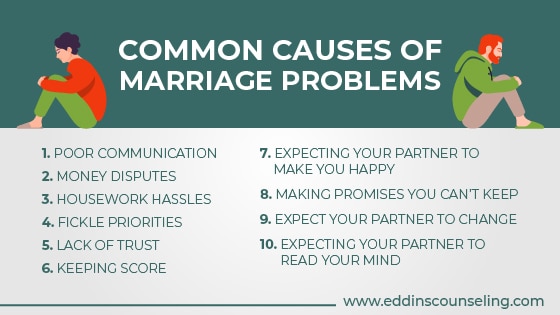
Read also
About child support - in detail
How to get alimony, change its amount and involve the other parent in bearing additional expenses, what to do if he evades payment, why he can be released from this obligation and repay the debt – answers to popular questions of alimony recipients and their payers
24 September 2020 Tips
The issue of paying alimony is worked out in the mediation procedure much more efficiently than in court, since the factors of evasion of one of the parents from payments are leveled and the real interests of the child are taken into account (buying seasonal clothes, paying for a private garden or school, circles and sections, summer holidays). In my practice, all alimony cases that have gone through the mediation procedure have generated a higher financial support for the child from the side of the separately living parent compared to the court ones.
You can turn to a mediator for help both before the court (at the initial stage of a divorce) and during court proceedings (each time the court explains to the parties the right to resolve the dispute through mediation, but few people hear it). In addition, mediation is also possible at the stage of execution of a court decision. Indeed, it is often inconvenient for neither mother nor father to live according to the schedule that they were offered by the guardianship authorities and the court. After the mediation procedure, the parents come to a decision that is beneficial to both.
In addition, mediation is also possible at the stage of execution of a court decision. Indeed, it is often inconvenient for neither mother nor father to live according to the schedule that they were offered by the guardianship authorities and the court. After the mediation procedure, the parents come to a decision that is beneficial to both.
After the mediation procedure, you will receive a document - a mediation agreement, which, if notarized, will have the force of a writ of execution. In court, a mediation agreement is approved as a settlement agreement. This means that you will have the opportunity, in case of non-fulfillment of agreements by the second party, to contact the bailiff service.
Where can I find a mediator?
- Court websites.
- On the official websites of associations of professional mediators. The mediator may not be a member of the association, and yet many associate on a professional basis.
- In social networks.
 Many mediators maintain expert blogs there.
Many mediators maintain expert blogs there. - Ask your lawyer. Many lawyers have undergone professional retraining and received a diploma as a mediator. And although not all of them practice, they often know the contacts of the best mediator in the region.
Out-of-court notarial remedies
It is wiser to avoid disputes about the division of jointly acquired property, maintenance obligations and the procedure for exercising custody of children. Therefore, all types of notarized contracts between spouses come to the fore: a marriage contract - if the parties are just getting married or are in family relationships; agreements on the division of jointly acquired property, on determining the procedure for communicating with the child and alimony agreement - if the parties have already divorced.
(See also: “The prenuptial agreement has ceased to be the prerogative of millionaires”, “How are the “hereditary” meters divided during a divorce?”, “Who will get the apartment bought with the money of the parents after the divorce?”)
Psychological support
Divorce is a difficult process.














